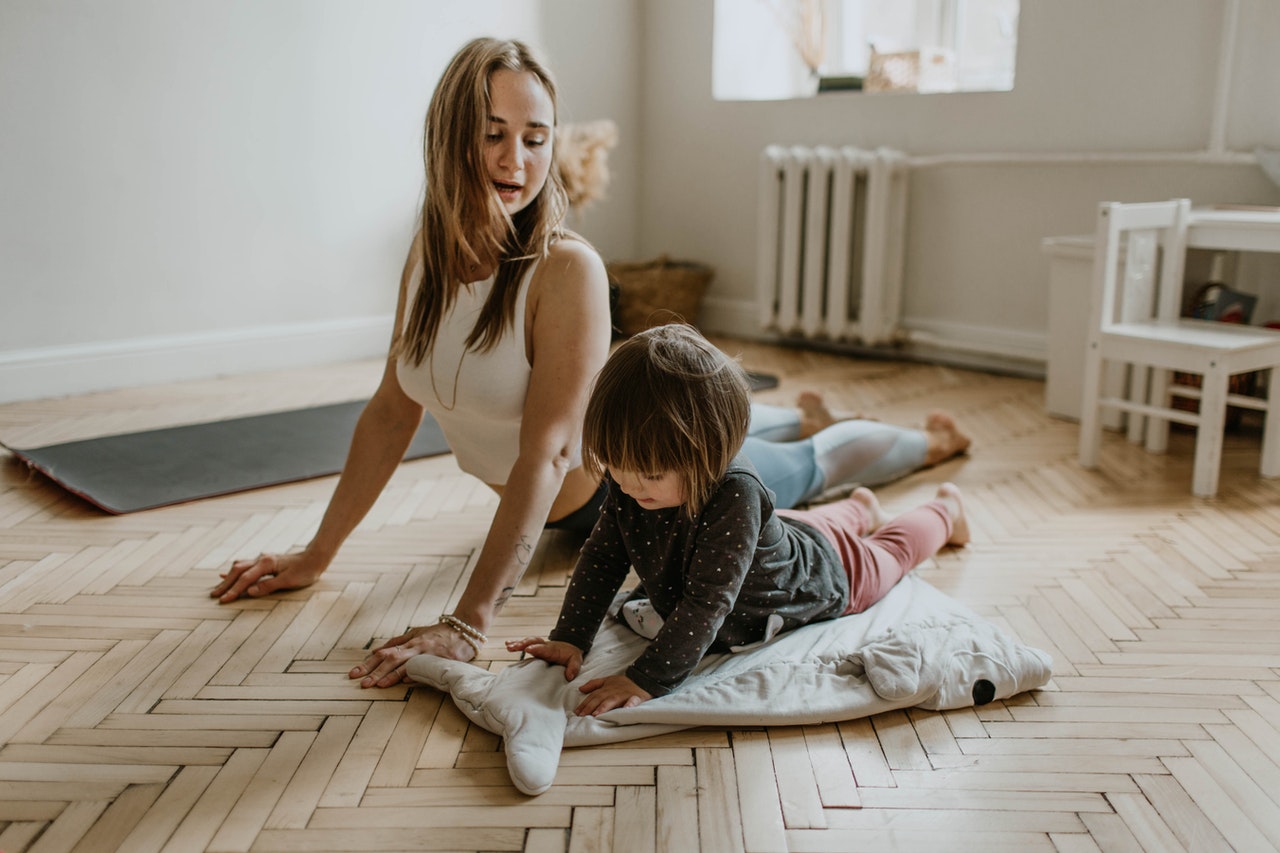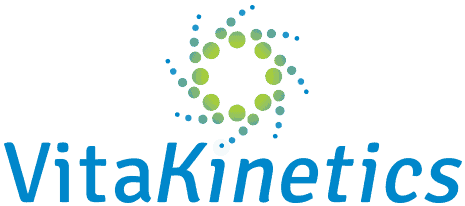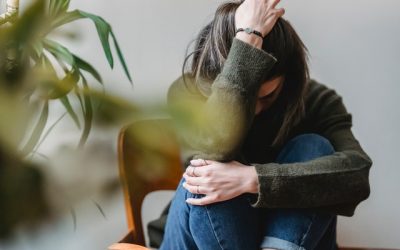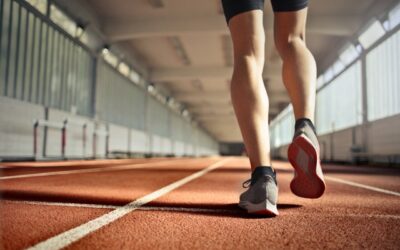Radically Resilient Health Podcast
Movement, Mindset, and Sleep Anomalies
with Guest Dr Nancy Byl, PT, PhD
In this extra special episode, Dr. Carolyn Dolan interviews one of he role models growing up – her mother, Dr Nancy Byl, PT, PhD. Nancy is an active and motivated physical therapist nearing 80 who preached about the importance of movement and mindset over sleep. She credits her ability to recover to nutrition, supplements, and a healthy connection to those around her.
Transcript:
Connie Wray: (00:01)
We’re back with Dr. Carolyn Dolan today, and we’re continuing our conversation about the key principles of eating well, moving well, sleeping well, connecting well and supplementing well with Vita kinetics. And more importantly, focusing on the concept that health is not the absence of injury or illness, but rather it’s the ability to recover and heal from injury or illness to live life, to its fullest. However, we try to be perfect in, in making sure that we’re hitting all of these principles. We, we can’t always do that. And, uh, Carolyn had been telling me many times about her mom, and we’re so excited to have Nancy on the podcast with us today because for Carolyn, one of the things that she had noticed growing up was that her mother was still, be able to do all of the things, be functioned, functioning, uh, be well constantly moving, but seemed to have that lack of one component, which was, she seemed to get by, uh, without sleep. And it’s interesting because there’s often this area where we make up in one area where we lack and what does that do for us? So, Nancy, we just thank you so much for, for being on the podcast with us. And, uh, Carolyn, I’m kind of going to have you start off here a little bit about, I’m just curious. When did you notice as a kid that your mom could do so much on such little sleep?
Dr. Carolyn Dolan: (01:31)
Well, first of all, thank you very much, mom, for joining us today, I’m really excited about sharing your story. Cause I think it’s so interesting and I think there’s a lot of people who can learn from this because a lot of times when we talk about like Connie mentioned, the foundational principles that VitaKineticsstands for, it’s not about all supplements. It’s it’s about those five core principles that you try to incorporate was that sometimes in life, much like even new motherhood. I remember when I was researching all about the importance of sleep, that understanding that and things like stress, like there’s certain components of our lives that either are just inherently sleep-depriving like newborn babies or inherently stressful, like something like parenting.
(02:17)
And those were some of the things that for me, that I realized, well, I’m never going to be able to do this perfectly. And no new mom is ever going to be able to sleep perfectly, right? But somehow people continue to thrive and show that radical, resilient health through those phases. And also the variability and individual differences. Um, one of the podcast topics we talked about was the importance of breakfast, particularly for women, a lot of the data support that women eating a high calorie, high protein breakfast, and improves a lot of their metabolic disorders, but that’s not everybody has to eat breakfast. Some people can skip breakfast and just, you know, eat what works for them and their lifestyle. But I say that the timing we mentioned, the story off air though, was, um, when I was, I graduated undergrad and I was getting ready to apply to PT programs and I had done my undergrad and bioengineering and there was this physical therapy, PhD combined bioengineering program, um, out East.
(03:19)
And we flew, we did a red eye flight out for this interview, my mom and I both flew together. And I remember sitting in that interview like literally my brain was sleep. I felt like I was sleeping. I don’t think my head fell off the chair, but I hadn’t slept hardly a wink all night. I felt physically ill. Um, and yet my mom was fully functioning, acting her complete normal self. And I think it was that that event that made me really come to terms with understanding like, gosh, my mom’s really not only does she not sleep very much because of the work she was in. And she’ll, um, mom, you’ll tell us a little bit more about the choices you made and, and where, but it seemed somehow just in time, the more I researched particularly about sleep, I realized how amazing somehow my mom’s brain and body has still remained at such a high functioning level as she and, and her physical fitness level two as she’s continued to age has been pretty amazing.
(04:23)
And that there had to be something that she was maybe filling that gap with, or that maybe she didn’t need as much sleep or that if she was not having as much sleep, some of these other lifestyle components really helped continue to help her thrive. And so with that, um, we’ll head over to my mom and I’d love to hear your thoughts on that. And, and we’ll go from there, I guess, which one of the foundational principles do you think was the eat well, move well, sleep well, connect well and supplement. Well, which one do you think was the most important for your continued to thrive despite having less sleep than most of the rest of us?
Dr. Nancy Byl: (05:09)
Well, I, I actually believe that my tolerance for less sleep started when I was much younger and not just when I was a, an adult and became a mom and had the other challenges of raising kids and trying to work. Um, I grew up in a lower middle class family. Um, everybody worked both my mom and my dad worked my sister and I shared a bedroom and kind of my view was that I needed to get things done and I needed to have a program of every day of things that I needed to achieve. And sometimes it meant that I couldn’t get a full night’s sleep. So I would go to another room because my sister, I mean, we’re in the same family, but my sister needed lots sleep. My sister and I looked a lot alike, but she was five foot one and I was five foot 10.
(06:03)
So that tells you, I used to say I would eat her food. Um, but I was so driven to accomplish, you know, being a good scholar in school. I’m still friends with someone I met in third grade who said, Oh Nancy, I remember you always had to sit in the front row. You always wanted to play baseball with the boys and basketball with the boys because girls didn’t play sports. And, you know, I thought you were kind of a freak because you know, you wanted to do everything that other girls didn’t really want to do. And this friend of mine is still a friend today. So knowing him for 70 some odd years. And I believe that I’m what drives me is physical activity. That if I don’t get physical activity, it makes me depressed. Whether it’s riding a bike, whether it’s walking, whether it’s writing stationary bike, jumping on a trampoline, skiing, playing tennis doesn’t matter, but it has to be one of those things that I have to do every day just to kind of maintain my wellbeing.
(07:07)
And the second is being positive. You know, if you have a list of things to do and you have things to accomplish that really drives you to achieve those things. And sometimes it’s very frustrating. If I don’t get my list done for the day, then I can’t sleep. And I’ve learned that if I can’t sleep on better to stay up and I complete my tasks and then go to bed, which means not getting as much sleep, but I don’t know if I could do what I did for all those years of raising kids. Um, and working in San Francisco and living in the East Bay. I got up every morning, five days a week at three o’clock in the morning. I didn’t go to bed till 11 or 12 because that’s when you know, I got it, got things set up for the next day.
(07:52)
But I was in my car driving to San Francisco by 4:00 AM, five days a week. And today going on 80, I’m not sure I could get by with that little bit of sleep three or four hours, but it’s very hard for me to, um, turn my motor off and go to bed early. I mean, that’s just not part of my lifestyle. I’ve also been somebody who is, um, done a fair amount out of quality, eating. Some people eat to live and some people live to eat. I’m a person who lives to eat. I love to eat, but I hate sugar. I hate desserts. I hate anything. That’s artificial with sugar. I hate artificial colors. I’ve been like that all my life. And with a family history of diabetes, it’s probably the only reason I haven’t gotten an active case of diabetes because I don’t like sugar and it doesn’t make me feel good. A dessert looks really, really good, but when I eat it, I don’t feel well. So I think that my, it was fortunate for me that I could be active, eat well, sleep slash be positively oriented and definitely goal directed.
Dr. Carolyn Dolan: (09:08)
You touched on the nutrition piece. And I do remember that growing up that you really, we didn’t have lots of sweets and sugars. Dad was the one that had the sweet tooth, but that you really were focusing on vegetables and protein. And that, that, that has carried you through, um, to, to the later years and such the movement piece. I will remember all the stories of you playing tennis the day before you gave birth to me and all the other physical family vacations and activities that we did. You know, the sleep like we talked about was, uh, particularly in those years was less than ideal. And then that connection piece where what you’re also really describing is also the connection to a positive mindset and how much that influences all those other health markers, the positive mindset, and also connecting to you’re very driven. Um, and your goals with physical therapy and helping patients and through leadership within the university and teaching physical therapy as a professional community, please describe your use or lack of use, um, or the role supplements played also in supporting your resilient house.
Dr. Nancy Byl: (10:24)
You know, when I was young, um, we always ate dinner together, both my mom and dad worked long hours, um, and people were starving in China. My mother used to say, so only put on your plate where you’re going to eat, and you’re going to sit here until you eat at all. Um, and dessert was not part of the, the meal structure, but my parents really were not on supplements. They sat if you had a good diet and a regular diet and you ate three meals a day and he went to school with a reasonable lunch, um, that you didn’t really need to take vitamins and supplements. I didn’t really start to take vitamins and supplements until I had kids married, trying to raise the kids and was working as a professional and realizing that my own diet, even though I tried to maintain a good diet, particularly for dinner with everyone, um, leaving at four o’clock in the morning, didn’t make it easy for me to have a good breakfast for myself, making lunch for everyone else didn’t mean I had time to make lunch for myself.
(11:29)
So, you know, really in my adult years, I started taking supplements and, you know, my husband will claim that I occupied many cupboards full of different supplements and vitamins that I had read about, heard about, give it a try, you know, that kind of thing. Um, and it wasn’t really until Carolyn, you got involved in and looking nutrition and the benefits that, you know, I went to the kinetics. Not that it’s the only thing, because I do supplement with some additional calories, salmon and protein and things like that. But I have to say, I hate sodas. I never really ate junk food. Cause that didn’t turn me on. And I didn’t drink even in high school or college. I was not someone who drank a lot of alcohol. So what did I drink? I drank water. Um, and so I did maintain better hydration than I do today in Reno because Reno is a much drier environment.
(12:30)
Then I was raised in Sacramento, but I have to say that I was just very fortunate that bad food doesn’t make me feel good, good food makes me feel better. So I’m attracted to what makes me feel good. And you know, I, Carolyn I enjoy a glass of wine. She thinks we probably drank a little too much wine, but you know, altogether, I don’t eat a lot of junk food and I never had, but I have been incredibly lucky. I’ve been under stress just as much as everyone else, particularly stressed with a Callan sister who had a seizure disorder. And many of us were stressed during those days. And I have to say finding some quiet time, doing something that makes you feel good is really helpful to manage stress, which I think is a very important part of healthy living. And I can, I can manage some of my stress by being active, whether I go and play tennis or I go and I ski, or I go and I walk or I ride my bike.
(13:37)
And I’ve learned that I used to have this argument with Dr. Michael Merzenich, who believes about brain fitness. And he and I would give lectures together. And Mike’s point was physical exercise is a waste of time. You are not enriching your brain, that you are just, you know, stepping aside a very important part where you could be learning. So in this kind of growing professional life of mine, I tried to convince Mike that if you exercise while you’re learning, that it’s even better than for you to sit and learn. And Mike is overweight and he used to laugh and say, Oh, that’s ridiculous Nancy. But you know, over the years he realizes that I’m right. So if I’m on a stationary bike, I read my journals. If I’m jumping on, on the trans trampoline, I watched the news skiing. It’s hard to do something else because otherwise I’ll fall down. Um, but I haven’t serious balance problem. And I’ve had this balance problem since I was 21. And I decided that I was going to learn how to manage my own physical limitation and not restrict the activities I enjoyed, but I do believe I’ve been lucky. I was in the right place at the right time, met the right people, you know, and was able to really follow my dream and also had three great kids.
Connie Wray: (15:00)
What’s really interesting, Nancy, you, you and I have very similar backgrounds. I worked in morning radio for 21 years and I was in the same boat. I was up at three o’clock in the morning and on my way to work at 4:00 AM. And I did that for 22 years and I was very much with you. I didn’t have time for a big breakfast and I made certain adjustments. I think what’s interesting when you talk about, um, positive thinking, um, that for me is very much the connection with, uh, Vita kinetics connect. Well, I think, uh, for me exercise and the brain of being positive, when I exercise the stress goes to the wayside, I feel more positive. I feel after a workout or an exercise that I can look at a job and have a clear mindset. So I’m curious if you think that maybe because you exercised so much that even though we sit here and talk about your lack of sleep, you were so active in everything that you’re doing, that it almost made up for this other component of sleep. That was, you were not sleeping, but you, I mean, you bounce on a trampoline while you watch the news. You’re always in constant motion. Um, it seems to me that that constant motion was what kept you healthy so that the sleep almost was not necessary. Would you, do you feel that way?
Dr. Nancy Byl: (16:29)
You know, I, I actually cannot sleep when my mind is running. I have to be able to, you know, lay down in bed and decide that it’s time to sleep. And I’ve learned that I really can’t be doing a last minute project on the computer or trying to solve, you know, a, a manuscript or, you know, our research question. I really can’t do that right before I go to sleep. I am much better off if I say, okay, I’m going to go to sleep and 30 minutes, get a glass of water and read a fun book. So my reading, maybe everybody doesn’t consider it fun. I used to read professional literature, which was not relaxing. Now I read mysteries, which makes it a little bit more relaxing for me to say, okay, it’s time to sleep and I can go to sleep. I do think, you know, this REM sleep, the deep sleep.
(17:22)
That is what refreshes your body. It’s not just being in bed clearly. And it’s not the people who are awake, a good deal of the time are superficially sleeping. And, and I do think there’s something about, you know, increasing the delivery of oxygen to your brain, to your system that you get from exercise. That pretty much is probably the same benefit you get from being in REM sleep. You know, it’s a time to recover if you, to people like Dr. Merzenich, it’s a time for your brain to regenerate, to refresh, to review, you know, to really be more positive about what you learned today and what you don’t want to forget tomorrow. So I do think that there is a, probably a metabolic benefit of exercise that most people are only focusing on their joints and perhaps their weight, where I think the, you know, increase of oxygen delivery coupled with some learning and physical activity is probably what’s kept me, you know, where I am.
(18:22)
And even though I’m theoretically retired from a very demanding faculty position, I now volunteer for twice as many things as I can easily keep up with if you will. So there’s always, you know, every day there’s something that I need to accomplish. And, and I think that that’s, that’s, um, part of the nexus of, uh, how to age in a healthy way. I don’t know how to separate the benefits of, of nutrition because I’ve never really been on a horrible diet. Um, I do feel that the balanced try to kinetics that I take, um, if have helped me recover quickly from injuries. I had my hip replaced. It was family crisis a year ago when I agreed to have my hip replaced on Christmas Eve disrupt everybody’s Christmas. But, you know, I was back to work, you know, within a week and recovered quickly was not on opioids.
(19:22)
In fact, I couldn’t get my opioid prescription filled when I left the hospital. And that led to a family debate about where the fault was in that problem. But as a consequence, you know, I had to immediately go on something like Tylenol and the wait a little bit before I started any ibuprofen, but I was really not on any pain medications. And I’m pretty sure that that was had a lot to do with the vitamins and the supplements that I take. And the fact that I was, you know, not unhealthy to begin with, I don’t have any major metabolic diseases. So, you know, it was a matter of just healing. So I, I think it’s, uh, I think this is a big picture. It’s not just one thing.
Dr. Carolyn Dolan: (20:09)
And that illustrates exactly the point that we’re trying to capture with radically resilient health too, is, is it’s not just one singular thing, no supplement is going to improve your health in a way, if you don’t move, if you don’t eat well, you know, it’s, it’s not a, um, a lot of people like to just take a protein shake as a meal replacement on a regular basis, but that’s not going to get you to the health picture that you’re looking for. Cause it is all of those things. You know, that once in a while, that’s probably okay to supplement in a way, but really it says a supportive or a boost to all the other components of your life that you’re trying to do. And, or the way I look at supplements is that it’s to compensate at periods of your life when there are things that you can’t control, like your job requires you to get up at three or four in the morning, and you’re doing all the other things you can do, but maybe you need a little extra crutch during that phase phase of life, or just the idea that it’s everything together.
(21:14)
It’s not one and not the other, it’s everything kind of put together. And there are phases of your life where you’re able to commit more to one than the other. I wanted to just brag on you a little bit. Mom, if I may, and just explaining them, Nancy is nearing 80 here, she’s got a hip replacement that is relatively recent. The knee replacement was not sure exactly how many years ago, but that was maybe 10 years ago, mom. Okay. But that she has approached all of these things. And again, like you’ve said before, it has not stopped you from continuing to live life. She skied, I just talked to you yesterday and you were skiing in the morning. You had your tennis lesson in the afternoon. I wouldn’t be surprised if you have one of those little bicycles on your floor underneath your desk right now that you’re, that you’re cycling. I mean, literally movement is like she says, mam, my mom and dad both still ride their bikes when weather permits here in Reno. So the focus on that motion has really, um, been pretty profound, just bragging on you a little bit. That’s pretty impressive. Not many folks can do that. Well, I thank you so much for your time. Do we have any other questions, Connie
Connie Wray: (22:38)
Curious when you talked about your positive thinking and, uh, was that something that was instilled at you in a young age? Was it something that you feel like you just always had with you? Because I think there’s a lot of, especially right now in the midst of COVID we have so many people who are dealing with depression and anxiety, and I often find myself thinking, you know, gosh, I know how good I feel when I just go outside and I walk around the block, uh, it really eases that anxiety or that depression. Was that just something that was that instilled in you? Or was that something that you just always felt like I, you know, I have a good life and I’m going to continue to be positive.
Dr. Carolyn Dolan: (23:21)
No, that’s an interesting question, Connie. Um, I grew up in a family where I was, you know, very motivated to do well. Um, my sister who’s a delightful optimist was not motivated to do well. And so my parents spent a lot of time trying to stimulate my sister to be more scholastically involved and more active
Dr. Nancy Byl: (23:46)
In her social life and things like that. And to some extent I felt like that was, you know, ignoring me, um, yeah, who was self-motivated and just made me more motivated to be successful without that feedback from my own parents. Um, but it was very clear that, um, I was someone who, if I was sick, I was going to go ahead and be out there anyway, I wasn’t going to miss any school. Um, and yeah, I was going to show up if I said, I’d be there, I’m going to show up whether I felt terrible or not. Um, but I also was very lucky that I didn’t have a lot of illness as a kid. And I was very lucky that I’m kind of an extrovert. And I made a lot of friends who I totally enjoyed and it was a leader in my high school and college years.
(24:37)
And to me that was that, that’s what drives me, me, you know, to do what I do. And, and the interesting part, part of that is COVID for me is I’ve been married to a, an introvert, you know, for 57 years. And Carolyn Chris, even though in this environment clearly are worried that we’re open the vulnerable population with this. Um, COVID. And so we really, you know, I feel very isolated to not be able to get out. So getting back to tennis made it possible for me to get outside, interact with someone else, but not less than that six feet a distance. And when they opened, uh, the ski possibility again this year, if you recall, they were closed last year, just as I got back on the Hill after having my hip replaced. So I felt really cheated from something that I enjoy and I’m not a good one skier.
(25:30)
I just enjoy being out there. It’s pretty, it’s cold and there’s a little bit of talent not to fall down, but you know, for me, the, the goal is I love people. I love helping people. I love even if I don’t like this virtual environment, um, I have to say all the meetings that I now I’m different boards. All the meetings are virtual, but I still feel it yeah. That I’m able to help and contribute. And yeah, I suppose I just got an email from someone who said, you just gave this course at CSM and it’s on, you know, and you didn’t talk about mentoring, older people. Like how do you mentor a professional who’s in their fifties and sixties? How do you mentor them about what to do next? And I don’t have the answer to that because I kind of measured myself, you know, through these, um, older years.
(26:27)
Um, so I only have experience mentoring, young people who are coming into the profession. Um, but I, I actually think, you know, I’m, self-driven, um, my parents would cheat to make me lose when we played games because they said I was a bad loser and that I’d only play the game if I could win. And I have to tell you, it’s like playing a game with Ryan Carolyn’s oldest son and he never loses. And it’s very frustrating to me because I always lose when I play a game with Ryan and I was a bad loser. So my parents would cheat to make me lose because they said I had to learn to be a loser. Even though some people say nobody’s a good loser, but at least I don’t get mad at Ryan for beating me every time. And I didn’t get mad at my parents when I found out they were cheating to make me lose, because I think it put me in a better perspective to go on. And I, wasn’t a competitive athlete. I played tennis and, you know, in my adult years played competitive tennis. And I wasn’t really a great loser tennis, particularly for people who cheat. So I think we all play the game, honestly. And for honest and trustworthy to me, that’s what life is all about. Caring about others, being honest and doing the best you can for yourself, but not just thinking about yourself and thinking about others as well. Thank you
Dr. Carolyn Dolan: (27:59)
So much, mom, for sharing your story. I think it’s, so it’s going to be so helpful for so many people just to hear your motivation, um, how you really used all the different fundamental principles throughout your life in different ways, um, to support how your active lifestyle now,
Dr. Nancy Byl: (28:21)
And thank you for doing these podcasts. I do listen to some and you know, this whole CSM is all webinars. And I think podcasts and webinars are kind of the same, uh, educational opportunity. And I think it’s important that people can look more carefully into their own lifestyle, particularly to nutrition, even though I’m a physical therapist like Carolyn and I don’t have a degree in nutrition, it’s rare that I see a patient that I don’t talk about nutrition. I don’t talk about sleep other than no, I’ve encouraged a lot of people to try that vibration blanket who are having trouble sleeping because they have a movement disorder. And, you know, I will talk at that level, but I don’t, I don’t force people to have, you know, uh, eight hours of sleep because I think some of us don’t do as well with eight hours.
Dr. Nancy Byl: (29:14)
I almost feel better, you know, when you have four to six hours of sleep, as opposed to eight. So, you know, that’s just my thing, but I think you guys are doing bringing a lot of positive thinking and health and wellness into daily living. And I even wrote a editorial on building immunity in the face of a pandemic and the shortcomings, and just talking about masking and six foot distancing and not adequately talking about nutrition and exercise and hydration and the importance of stress management as a way to improve your immunity to the pandemic. And this is not going to be the last pandemic I might miss the next one, but you guys are going to be here for the next pandemic and it will be here. And, um, and I think people need to be looking more broadly at immunity. And I think nutrition is probably the foundation for that.

Why Supplements Are Necessary and How They Make The Difference
Radically Resilient Health Podcast Why Supplements Are Necessary and How They Make The Difference Dr. Carolyn Dolan shares her deeply personal "WHY" about developing Vitakinetics. Dr. Dolan actually wrote a thesis setting out to disprove the need for supplements and...
How Emotions and Stress Affect Your Recovery Process
Radically Resilient Health Podcast How Emotions and Stress Affect Your Recovery Process In this special episode of Radically Resilient Health, Dr. Carolyn Dolan sits down with her friend Leah GiaQuinta who shares a story of recovering from harsh circumstances and...
Nutrition First, Then Supplement
Radically Resilient Health Podcast NUTRITION FIRST, THEN SUPPLEMENT In this episode, special guest, Dr. Danielle Litoff MPT/DPT joins Dr. Carolyn Dolan to discuss the importance of nutrition as a main ingredient in recovery and how we need to make supplements a...
Available at our partner locations

690 West 2nd St. Suite 101
Reno, NV 89503

13981 S Virginia St #402b,
Reno, NV 89511








